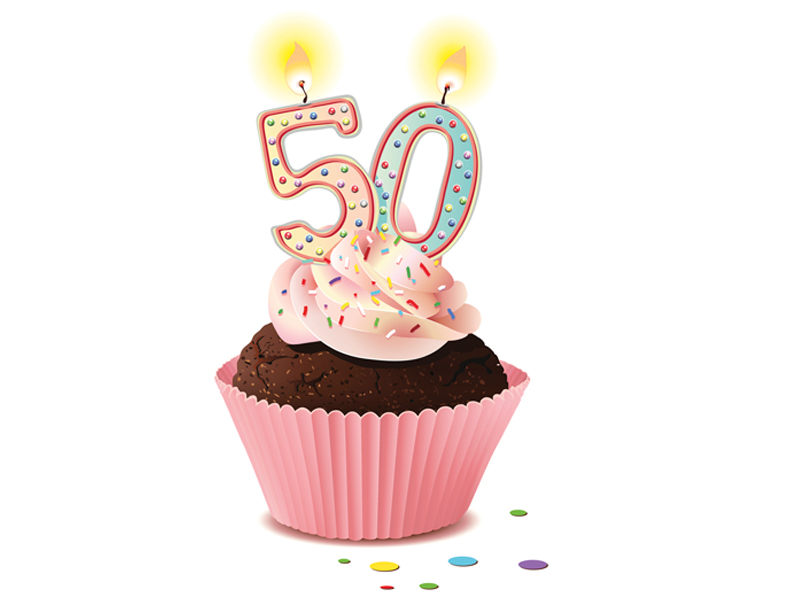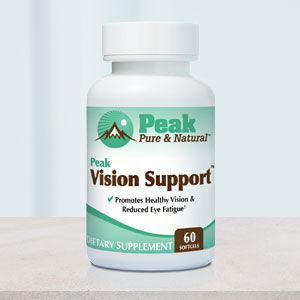Get Easy Health Digest™ in your inbox and don’t miss a thing when you subscribe today. Plus, get the free bonus report, Mother Nature’s Tips, Tricks and Remedies for Cholesterol, Blood Pressure & Blood Sugar as my way of saying welcome to the community!
9 changes that can sneak up on you in your 50s

If you’re not aware they’re coming, they can feel like an ambush …
But once you turn 50, things in your body start to change. We expect some changes in appearance and abilities, but a few of these are just plain weird.
If you know these changes are coming, you’ll be better prepared for them.
Not that you can prevent them altogether… but it will feel less like an ambush and more like a gradual and natural progression.
Plus, there are things you’ll be able to do to compensate for these changes that, while not reversing them altogether, will help you continue to feel like “yourself.”
Here, then, are four areas where those expectable, yet unexpected, changes can sneak up on you, and what you can do to grow more comfortable with them, and even slow them down.
Taste and smell
We are born with about 10,000 taste buds on our tongues that constantly regenerate. After age 40 or so, our taste buds actually stop growing back. So, by the time we hit age 50, our ability to enjoy the taste of our food has seriously declined.
And, the sense of smell is intimately intertwined with the ability to taste. Fewer taste buds can mean a slowly declining ability to appreciate the distinctive aromas we once enjoyed.
Of course, conditions like nasal allergy, nasal polyps and sinusitis can play a part. But in the absence of these conditions, by the time we’re in our 70s, most of us will have lost a lot of our ability to taste and smell our food as we did when we were younger.
Related: 9 ‘no-brainer’ steps for vitality at every age
Smell is also the sense most linked with emotion and memory. There is a lotion I occasionally use that, to this day, puts me right back in a rooftop hotel room in Barcelona when I was 30 years old.
Age-related changes in the sense of smell and taste occur gradually. If you notice a sudden or drastic loss of taste or smell, you should probably have a neurological evaluation. Such sudden changes can be associated with Parkinson’s or Alzheimer’s disease.
Joints, bones, and muscles
Getting older doesn’t have to mean slowing down, not if you pay attention to the changes that are happening in your bones, your muscles, and your joints, and give them what they need.
Bones – By the time you reach your 50s, the natural process of exchanging old, worn bone cells for new ones has slowed down to the point where you have more broken-down cells than can be replaced. It’s time to eat and exercise to protect those weaker bones.
Foods high in calcium and Vitamin D are needed. So are resistance exercises like hiking and lifting weights.
Muscles – Strength training is the best way to counteract the fact that, after age 50, both women and men lose muscle at a faster rate. Weightlifting isn’t just for men! Maintaining muscle strength will enable you to continue to live independently. And vitamin D can help your muscles as well!
Joints – The tissue and cartilage that cushion your joints thin over time. To keep from experiencing the pain that can go with this, often in the form of arthritis, there are three things you can do:
- Don’t slouch. It puts pressure on your joints.
- Maintain a healthy weight. Again, being overweight can strain your joints.
- Drink water! When you’re thirsty and don’t drink, your body pulls fluid from your joint tissue.
Skin and hair
Your skin and hair in your 50s go through some changes. While this may not be life-threatening, it can be uncomfortable.
There’s grey hair, of course. But you may notice more hair coming out in your hairbrush or left in the tub drain.
Related: Why you’re more relevant than ever after 40
And if you’ve been plagued with greasy or oily skin all your life, you may be glad to hear that your body will start producing less oil. In your 50s, your skin will feel drier. A good moisturizer will help.
And it’s not too late to protect your skin from sun damage. Wear sunscreen anytime you go outside.
Any damage you had as a child will reveal itself now in the form of sunspots, and possibly skin cancer. You should have a skin cancer check once a year; or if you see any new or strange spots or growths on your skin, always get them checked.
Vision and hearing
Getting regular eye exams in your 50s and beyond is even more important than it was before. The older you get, the more your eyesight will change.
The lenses in our eyes get stiffer with age, and can no longer switch quickly from a faraway focus to an up-close view. The result: you may find yourself squinting to read your phone, or wishing you had longer arms so you can hold that package far enough away to read the directions clearly.
For me, the solution has been two-fold. For routine reading, I use “readers,” glasses I’ve purchased without a prescription (I even borrow a pair when I’m in the store reading labels!).
For me, the switch has been really startling, since I’ve worn prescription glasses for nearsightedness since I was a child. I’ve gone from needing to hold things close, to needing “rubber arms” so I can hold them far enough away to read.
Related: The supplement that could prevent age-related macular degeneration
If like me, you’ve already been wearing prescription glasses, it is even more important to get those regular eye exams.
Our senior years are also when things can go drastically wrong with eye health. I’m referring to cataracts and macular degeneration — two very important reasons to regularly get an eye exam.
And then there’s hearing…
Up to 40 percent of people over age 50 have some degree of hearing loss. For me, I notice that I’m asking people to speak more slowly and clearly.
High blood pressure, heart problems, and diabetes can impair your hearing over time. Stay on top of those, and if you have concerns, by all means, ask your doctor about a hearing test. Don’t allow poor hearing to cut you off from the people around you.
Age is just a number
Some things may be inevitable with age, but how you age is, in large part, up to you.
Eating right, exercising, healthy lifestyle choices, keeping a positive outlook and taking advantage of superfoods and the best supplements for seniors (with anti-aging science behind them) can help you stay healthy and young at heart well into your 80s and 90s — and maybe beyond.
Editor’s note: Have you heard of EDTA chelation therapy? It was developed originally to remove lead and other contaminants, including heavy metals, from the body. Its uses now run the gamut from varicose veins to circulation. Click here to discover Chelation: Natural Miracle for Protecting Your Heart and Enhancing Your Health!
Sources:
- What to Expect in Your 50s — WebMD
- 17 Surprises Your Body Has in Store for You Post-50 — Purple Clover
- Opening up a new chapter for early diagnosis of Alzheimer’s — EurekAlert!














